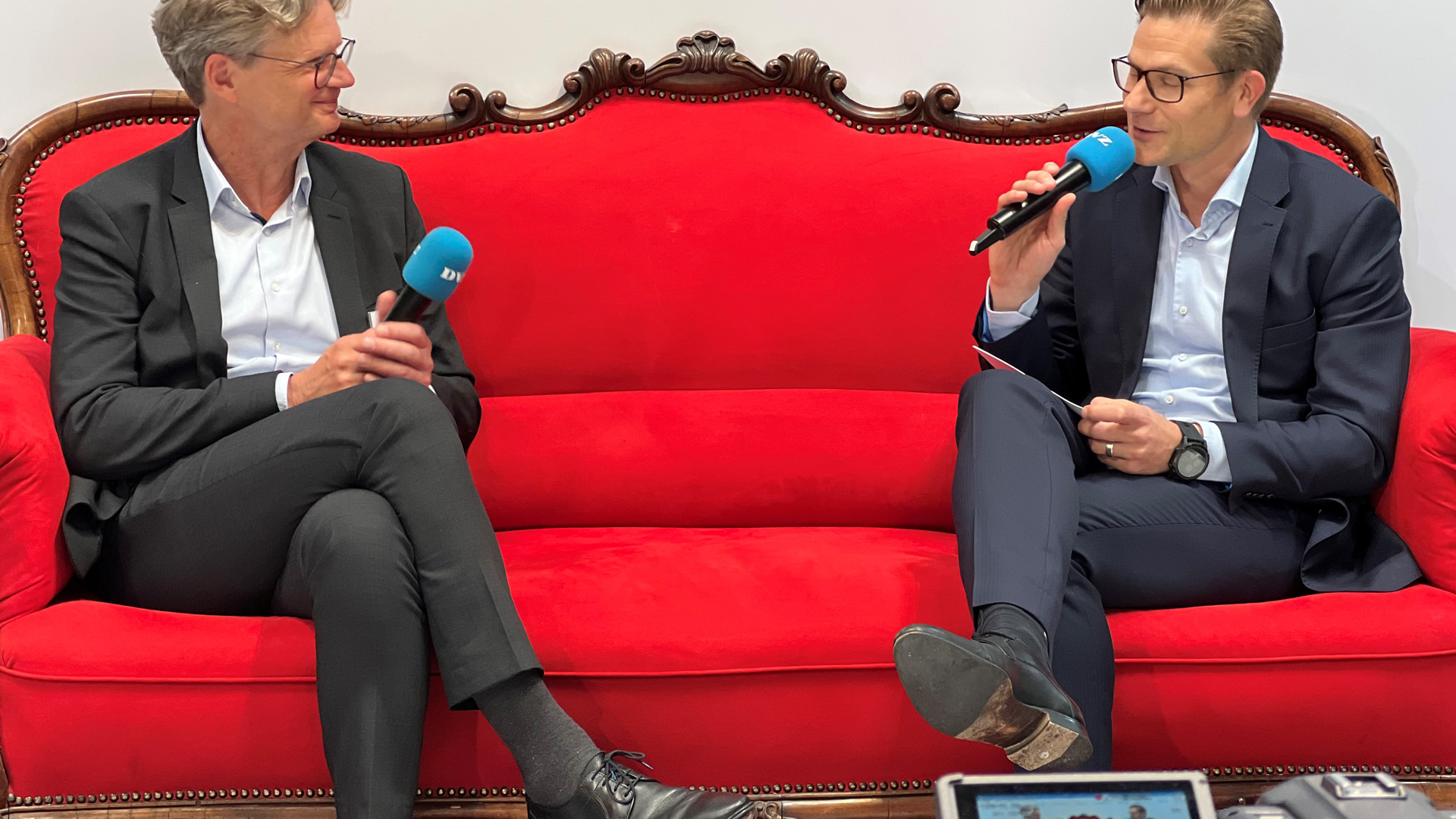
On the red sofa: Ewald Raben and Hansjörg Rodi analyse the market and the Schenker deal

‘The current market development applies to everyone,’ said Ewald Raben, CEO of the Raben Group, on the red sofa, responding to DVZ editor-in-chief Sebastian Reimann's question about the reaction to the ‘challenging and exciting times.’ Although the logistics service provider had to cope with a 14 per cent decline in volume for the first four months of 2025 compared to the previous year, the CEO said he woke up happy every morning and was pleased ‘that we have a good network in Germany. Not many can dream of that.’
Raben seems unfazed by the current turmoil in the market: ‘We have been active in the German market for 20 years and have used this time to build up our network and, above all, to develop a state-of-the-art IT system. That is helping us a lot now.’ After all, every crisis has its winners – ‘and we hope we will be among them.’
In addition, the number of players in the market is declining, partly due to the DSV-Schenker deal – at the same time, ‘the market is struggling with low prices’: many companies still do not understand ‘what a contribution margin per shipment or per customer is.’ These service providers are therefore not viable in the long term, ‘which makes the market thin and leads to consolidation.’
At the same time, regulatory requirements are increasing for everyone, which entails significant costs, for example in the IT sector. ‘Margins down, costs up – the gap is rapidly widening towards a negative EBIT.’ As far as Schenker's future role under DSV’s management is concerned, Raben expects rather positive impulses for the market: ‘DSV is very professionally and transparently organised and listed on the stock exchange. That means they have to make money.’ He prefers that ‘to lots of small companies that want to win business on price.’
Focusing on their own agenda
DVZ editor-in-chief Reimann also asked Hansjörg Rodi, Executive Vice President Road Logistics at Kühne+Nagel, how the logistics group is positioning itself against the backdrop of the Schenker deal. However, Rodi gave little away: ‘We will position ourselves as we have positioned ourselves,’ he said. As Raben noted earlier, Rodi also sees that ‘Schenker is no longer a market participant on the customer side.’ This means that ‘some customers are now open to discussions with new service providers.’
Regardless of developments in the market, Kühne+Nagel is currently ‘clearly working through’ its own agenda. And there are still ‘some gaps in the network’ that the company now wants to fill, for example in Italy. ‘Market attractiveness’ has been identified as an important target. Rodi is considering further acquisitions: ‘We expect a certain amount of momentum in M&As, especially among small and medium-sized companies. It also has to be a good cultural and human fit, which we always weigh up very carefully – for companies and entrepreneurs.’
In the wake of the acquisitions, Kühne+Nagel is also focusing on increasingly global customer requirements, which he hears about: ‘We know you in Europe, can you also help us in North America or Asia?’ That is why the company is now looking very closely at these markets. Here, the logistics service provider relies primarily on its own ‘control expertise, which is ultimately our digital back end.’ At the same time, however, there are also markets where it is necessary to invest in assets, such as in Southeast Asia, where Kühne+Nagel has purchased a transport company ‘that is now also our internal carrier.’ (bo)



